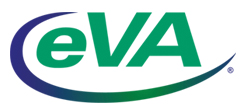By Carla Young Harrington
 “Is Your Workplace Prepared for an Active Shooter?”
“Is Your Workplace Prepared for an Active Shooter?”
That’s the title of a seminar this month at the Fredericksburg Regional Chamber of Commerce near our headquarters. It’s also the question many business leaders asked themselves after the Pulse Orlando nightclub shooting. That night, someone with the club had the presence of mind to post this Facebook warning within minutes of the initial shots: Everyone get out of pulse and keep running.
Active shooters are one potential crisis faced by companies today. Other crisis scenarios are disasters, accidents, sudden deaths of key associates, Internet attacks, product contamination/sabotage, accusations of corporate misdeeds or employee wrongdoing.
Larger organizations often have a comprehensive crisis plan that addresses safety and communications issues. Every company should have at least a basic plan that outlines steps the business will take to communicate with employees, their loved ones, business partners, investors, customers and the public in times of crisis.
Here are 5 of the communications questions your crisis planning should answer:
1) Who will serve as the company spokesperson? A primary spokesperson should be designated in advance, as well as a second-in-command who can assume the role if the spokesperson is unavailable.
2) What roles will others play in communicating with key constituents? Each member of your crisis communications team should know his/her duties.
3) What communications channels will the company use to reach its audiences? This can include phone/text/email alerts, social media, Website/blog updates, recorded telephone messages and outreach through news media.
4) Can your team easily access these communications channels both on site and off site? Contingencies should also be made for communicating as much as possible during power outages or Internet disruptions.
5) What routine communications systems need to be modified in times of crisis? These include automated telephone systems and social media postings. Previously written social media content that automatically posts in the midst of a crisis. for example, could confuse or offend audiences.
No one enjoys thinking about worst case scenarios. But a bit of preparation today will improve your company’s responsiveness and reputation in the event of a crisis tomorrow. Consider our agency for crisis communications planning, media relations and social policy planning at www.scapr.com.





